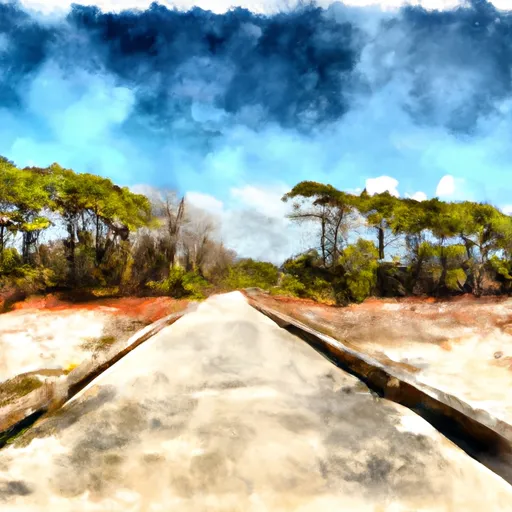Waccamaw National Wildlife Refuge
Leave a RatingLast Updated: March 4, 2026
Waccamaw National Wildlife Refuge, located in the state of South Carolina, offers visitors a unique opportunity to explore diverse ecosystems, observe abundant wildlife, and engage in recreational activities.
Summary
Spanning over 55,000 acres, the refuge protects and preserves a significant portion of the historical Waccamaw River and its associated wetlands.
There are several compelling reasons to visit Waccamaw National Wildlife Refuge. Firstly, the refuge is home to a rich variety of flora and fauna, including numerous rare and endangered species. Visitors have the chance to spot a wide range of wildlife, such as alligators, white-tailed deer, bobcats, and various bird species like the swallow-tailed kite and the red-cockaded woodpecker.
The refuge boasts several points of interest that are worth exploring. One such spot is the Waccamaw River, which meanders through the refuge, allowing visitors to take peaceful and scenic boat trips or kayak excursions. Additionally, the refuge features several hiking trails, offering opportunities to immerse oneself in the natural beauty while observing wildlife and enjoying the serene surroundings. The Pitch Landing, operated by the refuge, is a popular launching point for boating and fishing activities.
Interesting facts about Waccamaw National Wildlife Refuge include its significance as one of the largest protected freshwater tidal marshes on the East Coast. Its diverse habitats support over 400 species of birds, making it an important destination for birdwatching enthusiasts. The refuge also contains remnants of historic rice fields, serving as a reminder of the region's cultural and agricultural heritage.
The best time to visit Waccamaw National Wildlife Refuge is during the spring and fall seasons. Spring brings a burst of colors as wildflowers bloom, and migratory birds make their way through the area. Fall provides a pleasant temperature, with vibrant foliage painting the landscape. However, the refuge offers something unique and captivating throughout the year, so visitors can plan their trip based on personal preferences and interests.
To ensure accuracy, it is recommended to cross-reference the information provided with official sources such as the U.S. Fish and Wildlife Service website, travel guides, and reputable tourism websites.
°F
°F
mph
Wind
%
Humidity
15-Day Weather Outlook
5-Day Hourly Forecast Detail
Park & Land Designation Reference
Large protected natural areas managed by the federal government to preserve significant landscapes, ecosystems, and cultural resources; recreation is allowed but conservation is the priority.
State Park
Public natural or recreational areas managed by a state government, typically smaller than national parks and focused on regional natural features, recreation, and education.
Local Park
Community-level parks managed by cities or counties, emphasizing recreation, playgrounds, sports, and green space close to populated areas.
Wilderness Area
The highest level of land protection in the U.S.; designated areas where nature is left essentially untouched, with no roads, structures, or motorized access permitted.
National Recreation Area
Areas set aside primarily for outdoor recreation (boating, hiking, fishing), often around reservoirs, rivers, or scenic landscapes; may allow more development.
National Conservation Area (BLM)
BLM-managed areas with special ecological, cultural, or scientific value; more protection than typical BLM land but less strict than Wilderness Areas.
State Forest
State-managed forests focused on habitat, watershed, recreation, and sustainable timber harvest.
National Forest
Federally managed lands focused on multiple use—recreation, wildlife habitat, watershed protection, and resource extraction (like timber)—unlike the stricter protections of national parks.
Wilderness
A protected area set aside to conserve specific resources—such as wildlife, habitats, or scientific features—with regulations varying widely depending on the managing agency and purpose.
Bureau of Land Management (BLM) Land
Vast federal lands managed for mixed use—recreation, grazing, mining, conservation—with fewer restrictions than national parks or forests.
Related References

 Huntington Beach State Park
Huntington Beach State Park
 Wachesaw Park
Wachesaw Park
 City of Georgetown Clock
City of Georgetown Clock
 Eastbay Park
Eastbay Park